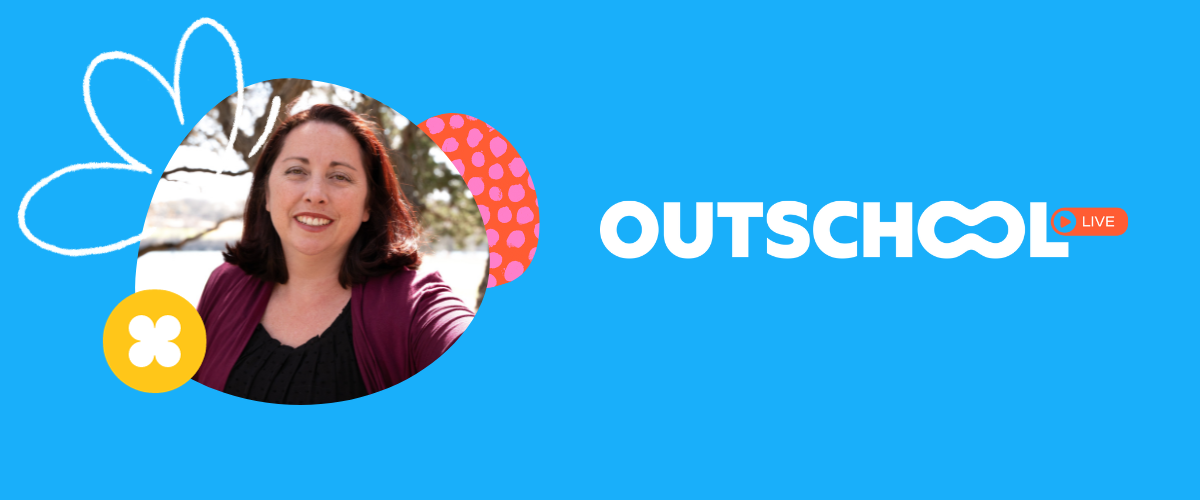Neurodiverse, Neurodivergent, Neurodistinct, and Neurotypical…all terms we see increasingly used in media and education contexts. Coined in 1990 by Judy Singer, Neurodiversity acknowledges our brains are wired uniquely, resulting in differences in how we think, move, process information, and communicate.
It often manifests in our preferences for learning and our behavior. When a learner’s brain processes information in a way that is not typical of most individuals, some refer to this as neurodivergence. There is no one “right way” to approach learning or thinking. Collectively, humanity is neurodiverse.
So, what’s Neurodiversity got to do with Outschool? Outschool is committed to serving ALL LEARNERS.
As a premier online learning platform, Outschool offers opportunities for Neurodivergent learners to engage in accessible small-group education led by vetted professionals. In addition to providing academic enrichment and support, Outschool is also a great resource for online social skills instruction.
Creating an accessible and communal space for learners pursuing their curiosities requires caretakers and teachers to take collective responsibility for the learning of all children. It’s critical that the learning environment at home and online be accessible and supportive of each child’s individual needs.
I challenge you to pause and consider how you can create a supportive virtual and homeschooling learning environment for ALL learners.
Learning environments in the United States and worldwide are often designed to favor Neurotypical learners. For example, students are generally required to show mastery of a topic in a singular way. This bias shows up in how we create physical and virtual learning environments. Universally designed learning environments:
can be accessed, understood and used to the greatest extent possible by all people regardless of their age, size, ability or disability.
Equitable education must be universally accessible and communal for the benefit of all learners. We are all distinct in our thinking, processing, and behaving. So we must begin to “disrupt the status quo” of education as we know it to ensure Neurodiverse communities are not overlooked.
Ask yourself the following questions to reflect on your virtual and home learning environment in service of Neurodiversity:
FIRST MONTH FREE!
Get support that meets kids where they are.
Learn moreHomeschooling families, ask:
Are online learning times and daily schedules clear in my child’s space?
All learners benefit from clear and consistent routines and procedures. Consider adding a daily visual schedule with words and images to your learning environment. Build in time to pause and share with learners what will happen next in the daily routine. You can even use a paperclip, clothespin, or sticker to have children identify the currently scheduled activity.
Do I know how my child learns best?
Many learners have preferences for how they learn and process information. Some learners may enjoy activities that include movement and simulation, while others may like to dialogue with other peers. Ask the child directly or observe them during learning experiences to determine their preferences for learning.
What should my child’s Outschool teacher know to support their learning?
Whether your child is enrolled in one class or several courses on Outschool, consider connecting with their instructor. Share important details about your child and how the instructor may support their engagement and participation during the course. Initiate contact with the instructor as soon as possible to ensure they are prepared to meet the needs of your child.
Online teachers, ask:
Are the instructions clear? Do students require simplified instructions? Images?
Many learners benefit from step-by-step instructions and repetition of directions. Consider what a learner is required to do or complete in a given lesson. Use kid-friendly language to explain and simplify tasks to support students' independence and understanding. When developing kid-friendly directions, consider having learners read them aloud to internalize what is being asked of them.
How can I integrate age-appropriate life skills into everyday learning?
Life skills include everyday activities that support students' daily living and citizenship, like problem-solving, communication, decision-making, and self-awareness. Life skills can also include simple activities such as cooking, counting money, and using transportation. Embed examples and opportunities for students to practice life skills in your course with other peers.
What digital tools may support ALL students to access the lesson?
Digital tools, such as voice typing software, using captions, and graphic organizers, can support students in their ability to understand and access instruction. Other tools, such as apps and software, exist to support student engagement and sustain attention. Prior to your lesson, consider what digital tools and supports might benefit student learning. This could be as simple as a digital timer.
Let’s make 2023 our best year yet by committing to serving and empowering the learning of all children, especially Neurodivergent learners.






.svg)
.svg)







